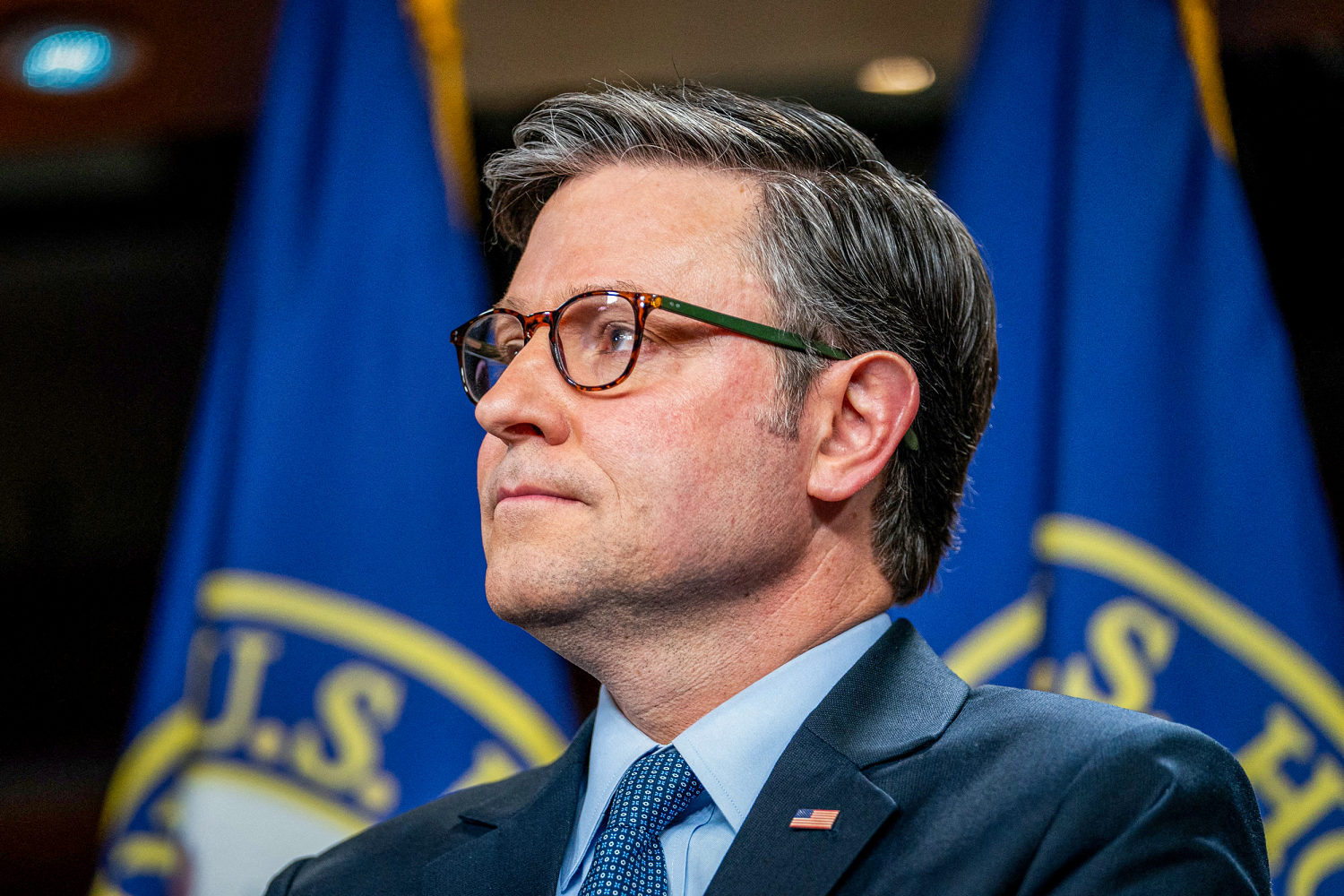
WASHINGTON — House Republicans on Thursday appeared to have finessed a second spending agreement to avoid a looming government shutdown, just hours after the original bipartisan agreement was torpedoed by President-elect Donald Trump.
House Appropriations Chair Tom Cole, R-Okla., told reporters Thursday afternoon that Republicans had reached a new agreement on government spending but provided few details about what would be changed from the initial sweeping package that had included everything from government funding to changes to prescription drug plans to facilitating the relocation of an NFL football stadium.
“We have an agreement, we expect to have a vote” on Thursday, Cole said as he left the Speaker’s office on Capitol Hill. He would not provide further details.
Democrats were not part of the renegotiated deal and haven’t yet signed off, according to two sources with knowledge of the negotiations.
A Democratic leadership source said that Minority Leader Hakeem Jeffries has seen the deal but hasn’t signed off on it yet. A Jeffries spokesperson had no immediate comment on the purported deal.
Speaker Mike Johnson and House Republican leaders were struggling earlier Thursday to devise a fallback plan to keep the government open, which is slated to close after the calendar turns to Saturday. Billionaire Elon Musk and Trump rallied conservatives to sink the original bipartisan funding deal.
The new agreement comes less than 36 hours before a deadline to fund the government or lead to vast swaths of the federal government shuttering and the furloughing of workers.
In disarray, House Republican leaders have kept their rank-and-file members, as well as senators in both parties, guessing as they work to find a path forward that can satisfy Trump’s demands and win enough support to pass the divided Congress and be signed into law by President Joe Biden.
Democratic leaders have excoriated Johnson and his team for reneging on the previous bipartisan deal that he had signed off on.
Some noted that it diminishes House Republican leadership’s credibility in any future negotiations.
On Wednesday evening, Trump threw an unexpected wrench into funding negotiations when he slammed the bipartisan funding deal Johnson had negotiated. And, in a last-minute demand, he threatened to go after Republicans unless they added a provision to extend the debt limit, months ahead of a deadline to prevent an economically catastrophic default next year — a monumental ask with less than two days to go before a shutdown deadline.
On Thursday morning, Trump went even further, telling NBC News that Congress needs to abolish the debt ceiling entirely. In a phone interview, Trump noted that some Democrats have wanted to nix the debt ceiling for years and that he would “lead the charge” in that effort.
Connecticut Rep. Rosa DeLauro, the former Appropriations Committee chair who is now the panel’s top Democrat, slammed Johnson and Republicans for reneging on the bipartisan funding deal that had been locked in just days earlier.
She said there was a “good agreement” in place that was moving ahead, “but for President Musk.”
Asked if the tech billionaire was calling the shots for Republicans, DeLauro replied: “It’d appear to me!”
(Trump told NBC News Thursday that Musk had only put out a series of statements seeking to kill the bipartisan compromise after discussing it with the president-elect, saying the two are aligned on the issue.)
After meeting privately with House Democrats, Minority Leader Hakeem Jeffries, D-N.Y., said his party continues to back the bipartisan deal reached with Johnson and the GOP to keep the government open through March 14.
But when asked by NBC News if Democrats could support a slimmed-down package that funds the government and only includes a farm bill and disaster aid, Jeffries twice refused to shut the door on that possibility.
“We are prepared to move forward with the bipartisan agreement that we thought was negotiated in good faith with House Republicans — along with Senate Democrats and Senate Republicans — that meets the needs of the American people at this moment in time,” Jeffries said at his leadership news conference.
“We are fighting for everyday Americans, not for millionaires and billionaires. We are fighting for everyday Americans who will be hurt by a reckless Republican shutdown.”
Jeffries added that any debate over extending or eliminating the debt ceiling right now is “premature at best.”
And in a revealing sign, Jeffries said he doesn’t know who’s in charge among Republicans to negotiate a deal, calling it a “great question.”
“I don’t have the answers right now,” he said.
Garcia said many Democrats are uninterested in giving into Trump’s debt ceiling demands considering what he’s planning to do.
“Donald Trump wants to get rid of the debt ceiling because he wants to essentially pass huge tax cuts to enrich his friends, to enrich Elon Musk and his companies, and redistribute hard-working wealth that middle-class Americans have earned,” the congressman said. “And so we can have a discussion about the debt ceiling separately.”
Rep. Troy Nehls, R-Texas, said he sympathizes with Johnson, contending that even “the Lord Jesus would have a very difficult time managing this conference.”
Rep. Mike Lawler, R-N.Y., who just won re-election in a swing district, said on MSNBC that it is “very clear, Donald Trump is in charge” and that Republicans need Democratic support for a bill.
“The reality here is very simple. We have to negotiate,” Lawler told host Andrea Mitchell. “I will remind everybody we are in a divided government. Still, Democrats control the Senate and the White House, so there’s going to have to be a bipartisan negotiation.”
Left unsaid, as Musk calls for shutting down the government until Jan. 20 — when Trump is inaugurated as president and Republicans will control Congress — is that the GOP would still need Democratic support to reopen it.
This article was published by NBC News on 2024-12-19 21:03:00
View Original Post








